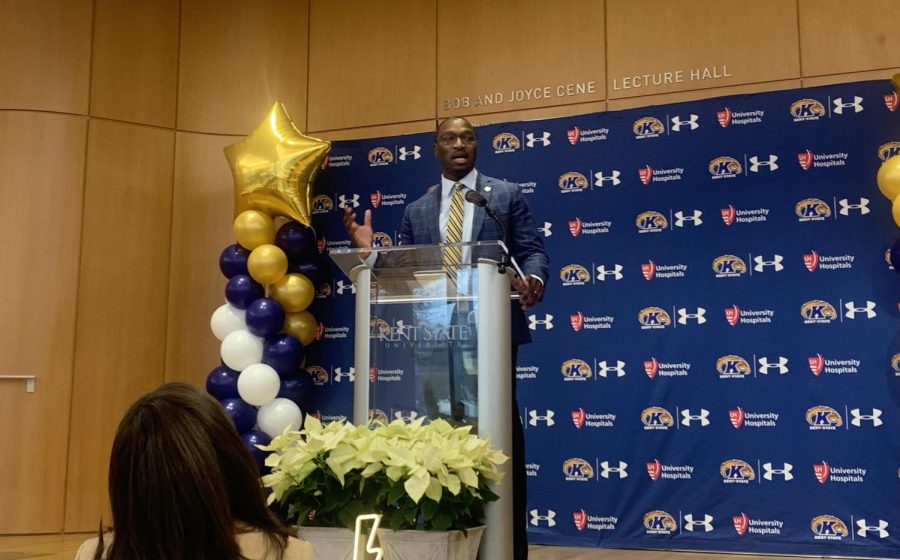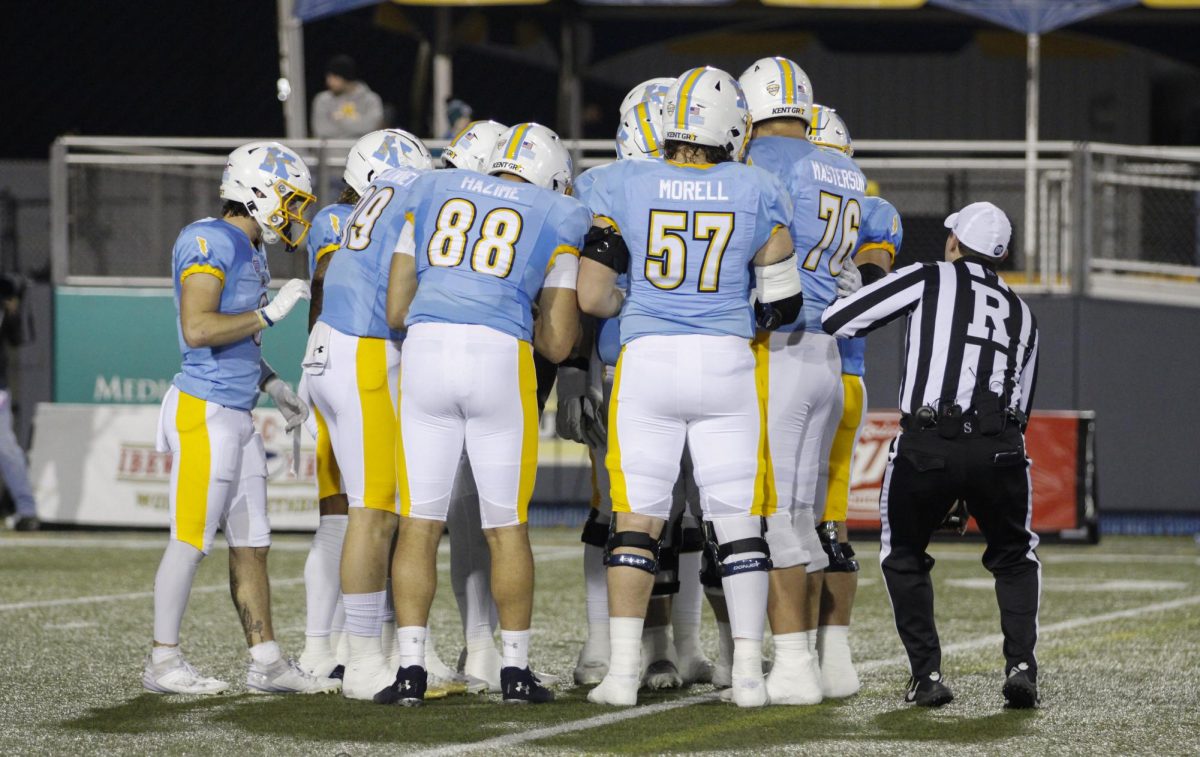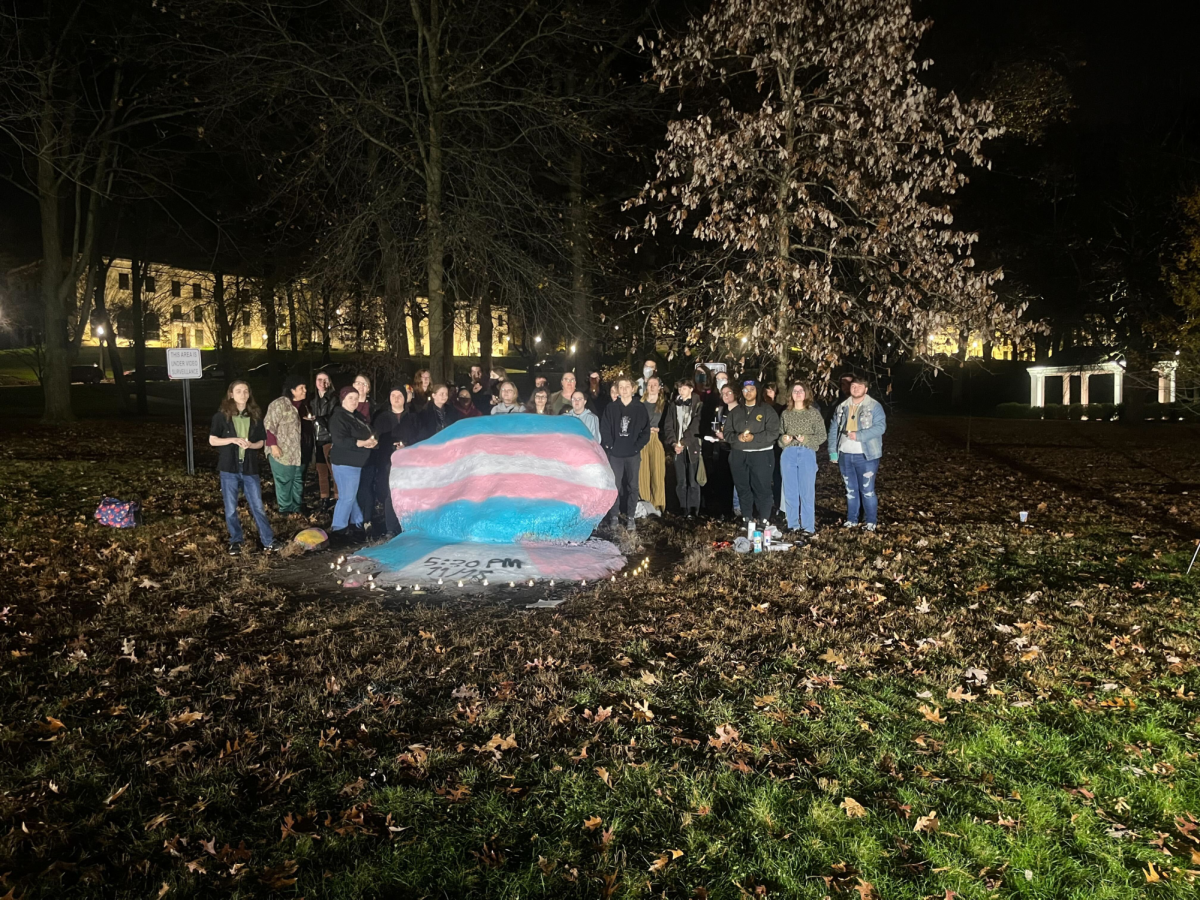“Aria! Aria!” Ptl. Michael Mendise shouted frantically.
More lights and sirens raced down the street, as civilian vehicles veered to the side, not knowing the urgency of the situation, as first responders ran up and down the side street where the chaos was unfolding. They were working with little time after dispatchers received calls of a young girl, between two to four years old, running unsupervised outside. Of the officers searching for the girl, Mendise, a 23-year veteran of the Strongsville Police Department, rushed to the scene when the call came in.
As Mendise’s cruiser roared through the streets, he remembered being frustrated and angry at the fact a small child was missing and alone. Furthermore, his emotion strengthened because no bystander could grab the girl.
“I was even yelling in my car, like ‘how are you not able to grab a three-year-old girl,’” Mendise said. “I said to myself, ‘just grab her!’”
Once Mendise got to the home of where the child lived, an older half-brother told him his sister went missing. Additionally, the half-brother mentioned Aria had non-verbal autism. Officers knew they had to be wise in the way they approached a person with this condition, as they did not want to upset or trigger the child in this situation. Those with non-verbal autism may respond differently to physical touch or noises. They first went ahead and checked the house after speaking with the half-brother.
“Oftentimes parents can’t find their kids, so first we always check the house, hiding in a cabinet or the closet, that’s usually how it goes,” Mendise said.
No luck.
The pressure was on and Mendise called for all available personnel to report to the scene, he said.
“I got on the radio and said ‘I need every available person at the department, from patrol, detective bureau, records people, administration,’” Mendise said, “‘you guys all need to come down here and start helping, this little girl is walking around the neighborhood.’”
Other officers responded to the location and secured a roadblock that completely shut down the side street where the little girl is now missing with no eyes on her in minutes. To Mendise, those minutes felt like hours upon hours, he said.
The moment that sticks with Mendise, the one playing in his mind at all hours of the day to this day, was when he found Aria.
The morning of Aug. 1, 2019, it was a typical day around the police station. Sunshine filled the blue skies, as scarce clouds traveled with the slight breeze. Mendise said roll call was taken and he went about his daily routine before “stuff went south quick.” This call changed him.
It changed me too.
To this day, I think about Aria in different ways that are triggered by various items, such as pool floats and bright pink, flowery sunglasses to nicknames, peanut and little monkey. I try to visit her now on a monthly basis at the Strongsville Cemetery, always serving as a constant reminder to not take the time I have with the people I love for granted.
That day in August, I was 16, a junior in high school and waited to do my last in-car driving session to get closer toward obtaining my drivers’ license. That’s all I was thinking about as the radio played in the background of my mom’s car. We were waiting for the instructor to arrive, but in the meantime, an influx of emergency vehicles became the center of attention.
Doses of hesitation from both my mom and I were evident with our confused looks, as we knew the home where my three-year-old cousin Aria lived in was on the side street, Cook Road, where these vehicles stormed toward. They managed to halt traffic on one of the busiest streets in all of Ohio, Pearl Road. We knew whatever was happening was not a pretty sight to see.
Within minutes, my mom received a phone call from a friend and confirmed that little Aria was missing and units were working diligently to find her.
A week prior, I remember Aria jumping on her small, indoor trampoline at her grandfather’s home. She giggled nonstop and gave me a big smile as her long, blonde hair threw itself around on each bounce.
As a family member, I was scared out of my mind — filled with anger and emotion to nervousness and confusion. That day taught me these cases not only impact the family of the person affected, but the first responders who are on the frontlines sent to fight, as others choose flight. Outside of the insight of that day, I wanted to know the impact on one of the officers who found Aria laying lifeless in what she knew as a happy and fun place that now became a crime scene — a swimming pool.
Mendise, without doubt, agreed to talk to me about his experiences and how Aria’s situation altered his life.
After Mendise found Aria, he said he stood in the middle of the front yard where he tried to rescue her. Supervisors realized he did not have a clear mindset and sent him home. They realized the gore of that day was so significant that it still sticks with him today.
“The sight of seeing [Aria] floating in the pool will haunt me for the rest of my life,” he said.
The countless therapy sessions, night sweats and vivid memories from that day indicate cases, like Aria’s, where Mendise and fellow first responders make their money and exhaust their skills, Mendise said.
“We don’t get paid for what we do, we get paid for what we might have to do,” he said.
The unknown of what the day brings can alter the mindset of first responders, and Mendise is one where his well-being changed as a result.
“People don’t realize, they think we just come here and write tickets,” Mendise said. “[People] don’t realize some of the stuff we do affects our lives daily.”
Mendise described himself as a “tough guy” and said incidents from his job would not impact him personally. Officers who endure fatal calls on the job must cope with the baggage it brings, but Mendise realized he reached his “boiling point.”
Now, he realizes he becomes emotional with cases and realizes the stressors from the job.
“I thought I could handle things that won’t bother me, until that day,” Mendise said. “It was that day where everything changed my entire world.”
Within Mendise’s “entire world” are his children, and as a father of three, his appreciation grew stronger toward them and being a proactive, protective parent is what he learned from Aria. Now that his children are older, he checks in with them more often than before, he ensures they get home safe and communicates thoroughly with them — just to be a responsible parent.
“That day I realized, and I’ve realized with all the calls I’ve responded to, everything can be great one day and then within a minute, things change, and they can change your entire life,” Mendise said. “So when I see my kids, I try to take in every moment I can and try to make it a happy moment.”
He has gained this greater appreciation for his family and wants to ensure a long, healthy and happy life for his children.
“I’ve had my kid for 16 years and my twins for 13 years, [Aria] was taken away at three years,” he said. “She didn’t have a chance to live her life.”
That day changed not only my family, but the first responders who had little time to save a little life. For all those involved, just like the song that was played over the radio by Halsey in my mom’s car at the time we received the call Aria went missing, it all was a “Nightmare.”
Anthony Zacharyasz is managing editor. Contact him at [email protected].








